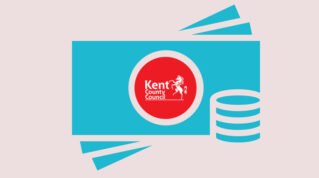In many ways, it’s hard to believe that Labour’s election victory was just a year ago given how much has happened since: Ofsted wranglings, the emergence of RISE, a national reckoning on SEND and a funding crisis that continues to bite. The list goes on.
It would be all too easy to become a little Eeyore-ish about it all, focusing only on the mounting challenges and seeing only the gathering storm clouds.
But there is a light breaking through. Amid the noise, the government has quietly begun to take curriculum seriously.
The curriculum and assessment review led by Becky Francis looks set to bring some welcome clarity about the need for a knowledge-rich approach, rooted in ambition for every child. That should be applauded.
But as I said when giving evidence to the House of Lords social mobility policy committee, we cannot ignore the reality that too many pupils are disengaging. As I told peers, children today are “voting with their feet”.
To be clear, this is not an anti-knowledge argument, though it raised a wry smile to see how quickly some rushed to frame it that way. The front line between so-called trads and progs still seems remarkably well-defended.
In fact, the truth is precisely the opposite. I believe deeply in the importance and power of knowledge. But we must also confront how we teach it, and how we make it stick.
Today’s pupils are more digitally enabled than many of the people teaching them. They have a clearer sense of what the future might hold. They are more discerning.
And, bluntly, they know that if they don’t want to turn up, they don’t have to. We can levy penalty fines, cajole them, pressure them, but it’s not going to switch them on.
So, we have to look to ourselves. In the face of this more discerning, demanding audience, it’s for us to work out how we teach “the best that has been thought and said in the world” not just rigorously, but imaginatively and engagingly too.
Knowledge must come first, but it can’t stand alone
Critics of this line of thinking claim it risks undermining the case for rigour. They are wrong. Strong curricula and strong engagement are not at odds. We must marry academic excellence with teaching that sparks curiosity, makes space for discussion and connects big ideas to the real world young people inhabit, now and in the future.
We can and must champion strong curricula while ensuring they are delivered in a way that captures young people’s attention and imagination, and speaks to the issues they care about most.
This is exactly what the curriculum and assessment review is edging towards in its recognition that skills, attitudes, values and engagement matter. Knowledge must come first, but it can’t stand alone.
At Lift Schools, we are tackling this challenge head on. Our Innovation Lab’s inaugural project, launching this September, will explore how to make the Key Stage 3 curriculum unforgettable.
We’ll be working with Year 6 and Year 8 pupils across our network to understand what makes learning stick – and what makes it sing. We’ll also be gathering views from leaders on how to revitalise Key Stage 3 so it becomes a catalyst, not a waiting room.
Systemic change takes time. In the meantime, it is up to us as trust and school leaders to show what is possible.
Across our 57 schools, we are relentlessly focused on engagement alongside rigour. We do this not to dilute standards but to ensure that the powerful knowledge we teach actually lands, is remembered, recalled and relished.
We should be encouraged by the government’s early moves on curriculum reform. Becky Francis’ interim report has taken some important first steps. But now is the moment to go further.
Let’s invest in teachers’ capacity to deliver unforgettable lessons.
Let’s listen carefully to what pupils are telling us about how they experience learning.
And let’s build a system that recognises that imparting knowledge isn’t about dry delivery; it’s about bringing the curriculum to life.
Every day this week, Schools Week will publish an article from an education leader reviewing the government’s performance in education in its first year in office. Read them all here
















Your thoughts